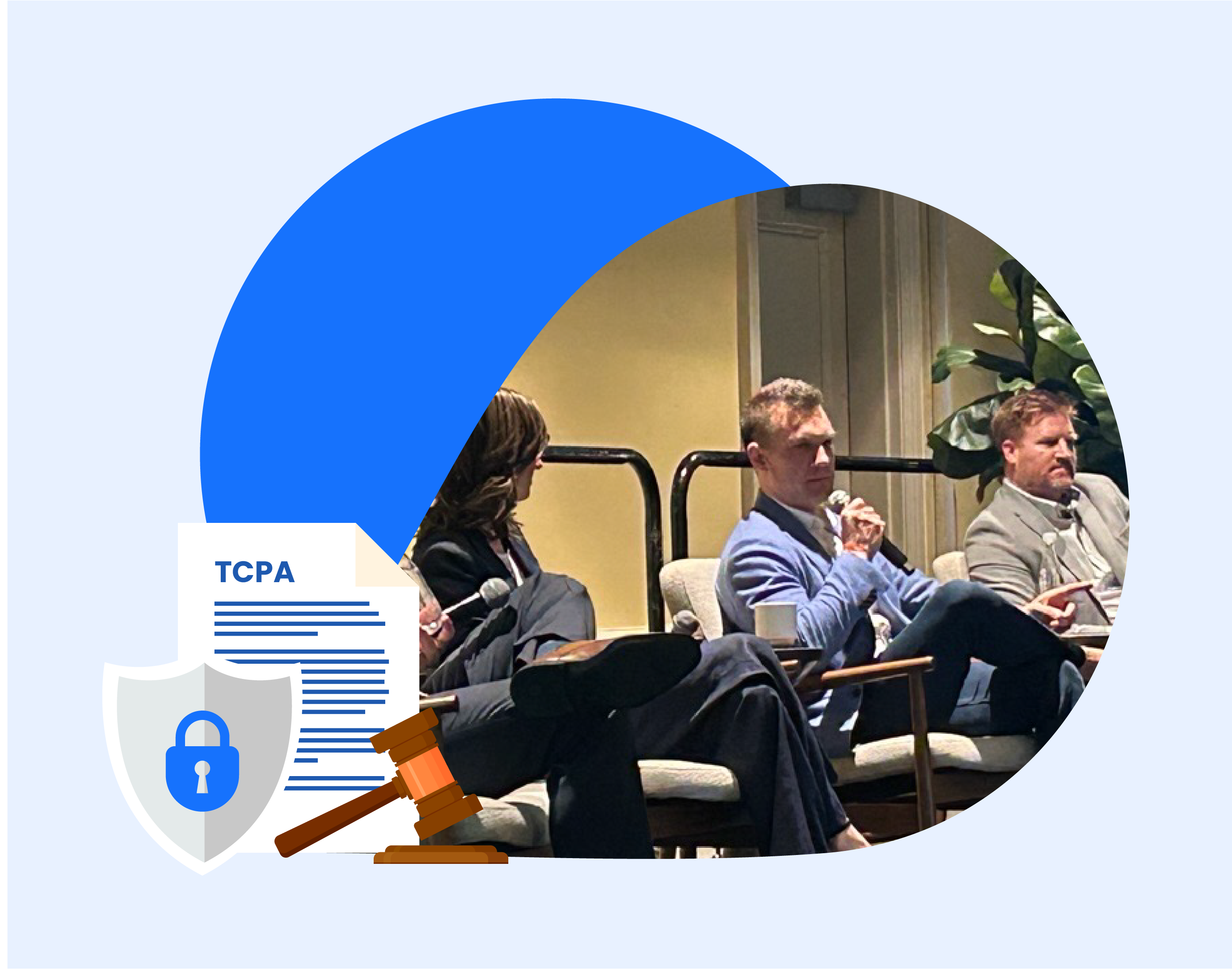Meet the Drips Rules Engine (DRE): Billions of Compliance Configurations and Counting
The best customer engagement must follow countless best practices, adhere to brand voice and campaign goals, and comply with constantly changing state, federal, and industry-specific regulations. Here at Drips, we’ve been managing these complexities for our clients for years so that they can focus on growing their business. Now, we’ve developed a new way to streamline this process, helping us deliver better outreach in less time. We call it the Drips Rules Engine, or DRE.
With DRE, we are innovating to support our clients at the pace and scale needed to communicate effectively with their prospective and active customers, members, and patients.
Let’s explore what DRE is and how it helps compliance meet conversation for Drips' CaaS programs.
What Is DRE?
DRE evaluates rules from multiple sources to form a matrix used for drafting conversational scripts at scale. These sources — called governing bodies — include state-level regulations, FCC rules, industry-specific requirements, Drips best practices, and more.
Having a clear matrix makes it faster and easier to adhere to specific rules and standards, helping us achieve desirable outcomes for our clients.
It’s important to note that the rules coordinated by DRE are not static. Our team constantly reviews new updates and rules to keep our clients ahead of the curve for both compliance and performance.
What Rules Are in Place?
We have experience working in the most highly regulated industries and help clients stay up to date with the latest compliance changes. Some of the governing bodies included in DRE are:
- Federal Trade Commission (FTC)
- Cellular Telecommunications Industry Association (CTIA)
- Telephone Consumer Protection Act (TCPA)
- National Do Not Call Registry (DNC)
- Federal Communications Commission (FCC)
- Consumer Financial Protection Bureau (CFPB)
- 10DLC and The Campaign Registry (TCR)
- Centers for Medicare & Medicaid Services (CMS)
- Various carrier policies (content and best practice alignment)
- Multiple state & specific governing bodies and rules
- Drips’ proven best practices
How Do We Establish the Rules For a Specific Program?
First, we work with our clients to develop the set of criteria that will build the foundation of the campaign. We consider the desired goals, use case, the origin of the contacts (first-party or not), branding, and more. Different rules apply for different use cases, such as sales and marketing-related campaigns versus informational and administrative campaigns.
Next, we look at all the rules by category: cadence, channel, knowledge, and content.
Cadence
Cadence rules determine when and how often we can and should reach out.
Example rule
Governing body: 777 — Fair Debt Collection Protection Act (FDCPA)
Rule: Required close after 60-second call
UX consideration: Understand limitations on additional outreach in specific campaign
With this rule in place, the system will close out a record when a call of over 60 seconds has been secured.
Channel
Channel rules identify where and to whom we can communicate.
Example rule
Governing body: Telephone Consumer Protection Act (TCPA)
Rule: Turn off Visual Voicemail
UX consideration: Do not script visual voicemail
With this rule in place, the system will not intend to leave a voicemail message.
Knowledge
Knowledge rules incorporate a library of tactical standpoints and software functionality that will be used on a client program.
Example rule
Governing body: The Campaign Registry (TCR)
Rule: Project requires content for opt-out confirmation message and project needs to have setting turned on
UX consideration: Be able to explain carrier opt-out confirmation to the client
With this rule in place, the system will modify the script for TCR compliance.
Content
Content rules define any essential verbiage or effective conversational logic to be included.
Example rule
Governing body: State-level collection laws
Rule: Do not disclose (third-party disclosure) the reason for contact
UX consideration: Segment out the included states to encompass specific scripting
With this rule, Drips will route certain states to the appropriate campaign that adheres to the state level collection laws.
Can We Customize Which Rules to Include?
The short answer is yes. Our clients have the ability to review the rules in place and make suggestions, add to, and even exclude certain rules.
However, it is important to note that some rules are associated with laws and thus are required and not negotiable. For example, we must exclude individuals on the National Do Not Call Registry and adhere to the FCC's "seven in seven" rules when reaching out to collect an overdue payment.
There are five categories for override levels:
- No ability to change
- Executive approval required to remove
- Strategy committee approval required to remove
- Member of strategy team approval required to remove
- Upon client request
A Recent Success Story: 3,200 Unique Rules Managed by DRE
Here's an example of the rules in play for a recent healthcare payer with a care gap closure use case. A top Medicare payer recognized a gap in care and needed a better way to engage their D-SNP members to schedule their annual wellness visit.



As you can see, this campaign leveraged over 3,200 unique rules to help keep the conversation on brand, in compliance, and on track to the desired outcome.
Ready to Transform Your Customer Engagement?
Discover the power of Drips’ Conversations as a Service to elevate your engagement metrics and help manage compliance. Contact us today to see how our innovative solutions can drive your success.
Disclaimer: This article and all information contained in it are for educational and informational purposes only. Neither Drips nor any of the writers of this article are law firms or attorneys, and nothing herein should be construed as or relied on as legal advice. Drips and the authors herein disclaim any obligations relating to the timeliness or accuracy of the information contained here. No warranties should be implied. Although intended to be current and accurate, regulations and court rulings, as well as interpretations of the same, are always changing and we recommend consulting with your own counsel.







